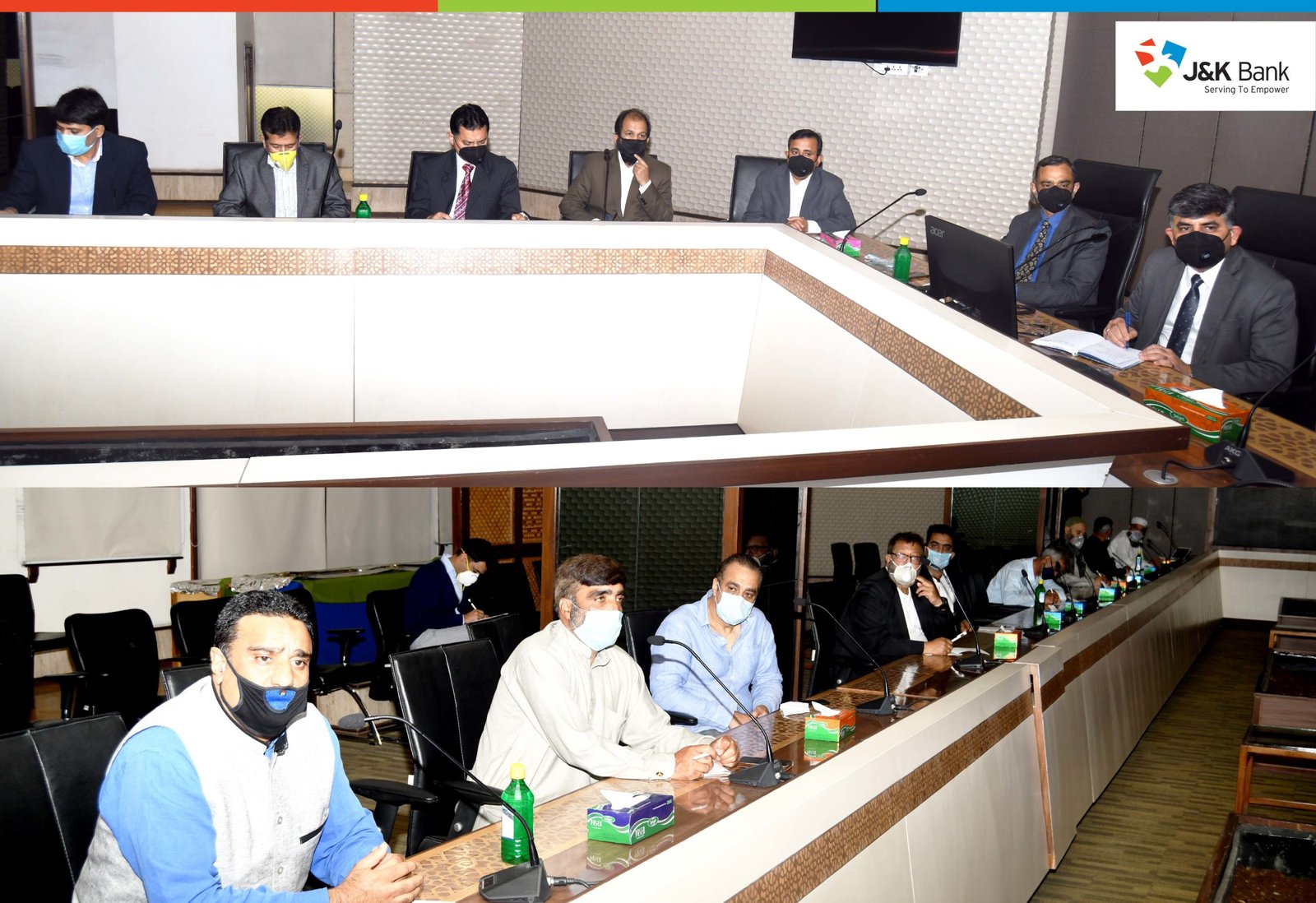BK NEWS
Sopore, Nov 24: J&K Bank Branch Chinkipora Sopore on Thursday organized a day-long Customer Awareness Program and Financial Literacy Camp. At the request of the local community, a programme was organised in the villages of Rampora and Rajpora, Dangerpora Sopore, Baramulla.
Mohammad Yaqoob Kaloo (Branch Head) presided over the programme assisted by Sameer Gojwari (Manager Credit), and Tawseef Ahmad (Recoveries & Follow-up). Dr Ashraf Ahmad (Veterinary Department), Dr Farooq Ahmad (Veterinary Department), Jahangir Ahmad (Horticulture Department), and Parviaz Ahmad (Khidmat Centre Warpora Sopore) attended the event as well. Several established unit holders under various government-sponsored programmes backed by J&K Bank graced the occasion and motivated the young to pursue the road of entrepreneurship/start-ups.
Yaqoob Kaloo opened the discussion by introducing J&K Bank and its mission of ‘Serving to Empower’ the youth of the country in general and the UT of J&K in particular, followed by the product line provided by the bank for youth development and upliftment to pursue entrepreneurship as a vocation and be job creators rather than job seekers. He introduced the audience to a plethora of government-sponsored programmes for unemployed youth, as well as the role of banks, notably J&K Bank, in establishing these policies through funding and linking the government and the unemployed youth for economic improvement and balance.
PMEGP, MUMKIN, Prime Minister Street Vendor’s AtmaNirbhar Nidhi (PM SVANidhi), DAY-NULM, DUDM, Tejaswini, KCC for Agriculture and allied etc schemes were discussed.
In addition, Sameer Gojwari emphasised the need for clarity of ideas, followed by thorough project reports on the sort of activity in which youth desire to grow their careers.
“Make in India concept needs to be replicated and implemented in every corner of the country wherein “produce and use local must be too vocal” to put the revolution in deep rural areas,” he said.
The J&K economy is opening up to the rest of the globe, and consumption is expanding in line with per capita and disposable family incomes. To meet that need, a large percentage of it is imported from neighbouring states, which might otherwise be produced in the J&K region. Projects in the pink revolution (meat), white revolution (milk and dairy goods), blue revolution (fish farming), green revolution (agricultural and associated products), and biproducts can breathe new life into the economy and reduce the region’s reliance on tourism and the apple industry. Aspiring entrepreneurs should develop ventures where raw materials are readily available, and the initial consumer should be the region’s native population, leading to profit generation in the early stages of the project with fewer chances of failure.
Youth were encouraged, and the role of J&K Bank in financing sustainable and future-oriented initiatives that prospective entrepreneurs may have in mind was reaffirmed.
Tauseef Ahmad emphasised the need for timely payment of interest dues.
“Once the project is funded and the trajectory is established, the crucial measures that must be taken care of when handling the finance part and its repayment,” he explained.
“It is visible where interest helps in managing leverage ratios can lead to downfall if not managed and paid well in time thus affecting the credit score initially and can lead to blacklisting in the long run which is no option in the modern-day world where in the entire economy and business revolves round the banking sector,” he added.
Parvaiz Ahmad focused on the digital aspect and paperwork linked to various credit products, as well as the online submission of applications for government schemes, and promised to assist ambitious entrepreneurs in this sector.
Yaqoob Kaloo presented a vote of thanks to people from both villages for coming out in large numbers despite the harsh winter. The Chair offered full financial assistance to the young who want to pursue entrepreneurship as a career and have unique ideas for repairing and rebuilding lost crafts and skills that were previously appreciated across the world.



 Industry3 years ago
Industry3 years ago


 Energy3 years ago
Energy3 years ago


 Economy1 year ago
Economy1 year ago


 Infra3 years ago
Infra3 years ago


 AgriBiz3 years ago
AgriBiz3 years ago


 Careers4 years ago
Careers4 years ago


 Economy4 years ago
Economy4 years ago


 Industry4 years ago
Industry4 years ago



























